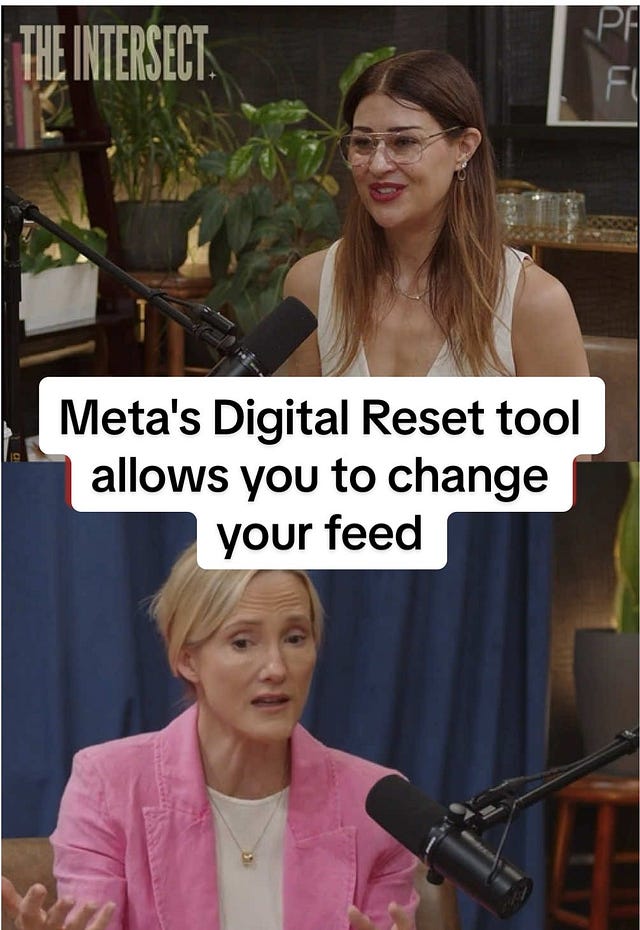Keeping kids safe on and offline
Will Meta's Teen Accounts help?
This week on The Intersect I sat down with Antigone Davis, Meta’s Global Head of Safety. What stood out most to me wasn’t the scale of the company or the billions in quarterly profits that continue to climb, it was something quieter. Her first piece of advice to parents was to trust your own instincts.
This felt simple and radical at the same time. Meta can hire thousands of people to build safety features. They can launch Teen Accounts with sleep friendly defaults and private settings. But at the end of the day, your kid is going to tell an app they’re older than they are or find a way into the parts of life you don’t see. Which, when you think about it, isn’t so different from life offline. Teens have always had spaces outside of their parents’ view.

 Tiktok failed to load.
Tiktok failed to load.Enable 3rd party cookies or use another browser
Antigone wasn’t trying to convince parents to go against their intuition. She knows the social pressure kids feel. They want to be on Instagram because their friends are. It’s the space where they live a hybrid life, and parents feel guilty if they say yes, and guilty if they say no. Antigone’s advice lands somewhere in the middle: trust yourself, set rules that feel right, don’t overreact when your kid comes to you with something scary.
Listen to the full episode: The challenge of protecting teens online with Meta’s global head of safety
What I keep thinking about is what happens next when kids start having AI ‘friends,’ and the line between tech and human continues to blur (see below, re: AI toys). This is a conversation I’d like to have with Antigone in the near future!
Some of what I’m reading this week:
Sam Altman’s Merge Labs is a new Neuralink rival, developing brain-computer interfaces
Sam Altman is reportedly launching a new brain-computer interface startup called Merge Labs, with backing from OpenAI’s ventures arm. Get ready for a whole new chapter of Altman versus Musk, in the race for the … singularity?!
by Dominic Preston (The Verge)
Blue collar jobs are gaining popularity as AI threatens office work
NBC reports on advice to ‘train to be a plumber’ and the growing appeal of skilled trades among Gen Z. While AI looms over white collar jobs, many see manual labor as safer. Of course robotics are advancing, too.
by Deon J. Hampton (NBC News)
What does AI know about a ‘glow up’?
More people are asking ChatGPT how to get hotter, feeding selfies and beauty insecurities into the model in exchange for ‘master plans’ that include retinols, spray tans and even surgery. AI beauty advice isn’t neutral. It’s scraping the internet for patterns and reflecting back the same old biases — Western ideals of pale skin, small noses, high cheekbones. This is … not great!
by Laura Pitcher (Dazed)
They’re stuffed animals. They’re also AI chatbots
Amanda Hess visits Curio, a startup making plush toys embedded with chatbots for kids as young as three. Marketed as ‘better than screen time,’ they are whimsical and unsettling all at once.
by Amanda Hess (The New York Times)
AI launches across the government
The Trump administration’s GSA is rolling out USAi, a secure platform for federal employees to experiment with ChatGPT, Claude, Gemini and more. Sold to agencies for just $1, the deal may entrench big AI companies in government systems.
by Sophia Cai and Gabby Miller (Politico)


